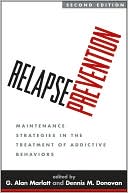Category Books
- Fiction Books & Literature
- Graphic Novels
- Horror
- Mystery & Crime
- Poetry
- Romance Books
- Science Fiction & Fantasy
- Thrillers
- Westerns
- Ages 0-2
- Ages 3-5
- Ages 6-8
- Ages 9-12
- Teens
- Children's Books
- African Americans
- Antiques & Collectibles
- Art, Architecture & Photography
- Bibles & Bible Studies
- Biography
- Business Books
- Christianity
- Computer Books & Technology Books
- Cookbooks, Food & Wine
- Crafts & Hobbies Books
- Education & Teaching
- Engineering
- Entertainment
- Foreign Languages
- Game Books
- Gay & Lesbian
- Health Books, Diet & Fitness Books
- History
- Home & Garden
- Humor Books
- Judaism & Judaica
- Law
- Medical Books
- New Age & Spirituality
- Nonfiction
- Parenting & Family
- Pets
- Philosophy
- Political Books & Current Events Books
- Psychology & Psychotherapy
- Reference
- Religion Books
- Science & Nature
- Self Improvement
- Sex & Relationships
- Social Sciences
- Sports & Adventure
- Study Guides & Test Prep
- Travel
- True Crime
- Weddings
- Women's Studies
Relapse Prevention: Maintenance Strategies in the Treatment of Addictive Behaviors » (2nd Edition)

Authors: G. Alan Marlatt (Editor), Dennis M. Donovan
ISBN-13: 9781593856410, ISBN-10: 1593856415
Format: Paperback
Publisher: Guilford Publications, Inc.
Date Published: February 2008
Edition: 2nd Edition
Author Biography: G. Alan Marlatt
G. Alan Marlatt, PhD, is Professor of Psychology and Director of the Addictive Behaviors Research Center at the University of Washington. His research has been supported by funding over the years from the National Institute on Alcohol Abuse and Alcoholism, including support for his current Senior Research Scientist Award. He has received several awards for his work in the addictive behaviors field, including the Jellinek Memorial Award for Alcohol Studies, the Innovators Combating Substance Abuse Award from the Robert Wood Johnson Foundation, and the Distinguished Research Award from the Research Society on Alcoholism. He is a Fellow of both the American Psychological Association and the American Psychological Society, and is past president of the Association for Advancement of Behavior Therapy.
Dennis M. Donovan, PhD, is Director of the Alcohol and Drug Abuse Institute, Professor in the Department of Psychiatry and Behavioral Sciences, and Adjunct Professor in the Department of Psychology at the University of Washington. He has published extensively in the area of substance abuse and addictive behaviors, with research funding from the National Institute on Alcohol Abuse and Alcoholism and the National Institute on Drug Abuse. He has served on the editorial boards of the Journal of Studies on Alcohol, Psychology of Addictive Behaviors, and Addiction. A member of a number of national professional organizations, Dr. Donovan is past president of the Society of Psychologists in Addictive Behaviors, and is a Fellow of Division 50 (Division on Addictions) of the American Psychological Association.
Book Synopsis
This important work elucidates why relapse is so common for people recovering from addictive behavior problems--and what can be done to keep treatment on track. It provides an empirically supported framework for helping people with addictive behavior problems develop the skills to maintain their treatment goals, even in high-risk situations, and deal effectively with setbacks that occur. The expert contributors clearly identify the obstacles that arise in treating specific problem behaviors, review the factors that may trigger relapse at different stages of recovery, and present procedures for teaching effective cognitive and behavioral coping strategies.
Table of Contents
2. Relapse Prevention among Diverse Populations, Arthur W. Blume and Berenice García de la Cruz
3. Treating Alcohol Problems, Ronald M. Kadden and Ned L. Cooney
4. Relapse Prevention for Smoking, Saul Shiffman, Jon Kassel, Chad Gwaltney, and Dennis McChargue
5. Relapse Prevention for Stimulant Dependence, Kathleen M. Carroll and Richard A. Rawson
6. Relapse Prevention for Opioid Dependence, Nancy A. Haug, James L. Sorensen, Valerie Gruber, and Yong S. Song
7. Relapse Prevention for Cannabis Abuse and Dependence, Roger A. Roffman and Robert S. Stephens
8. Relapse Prevention for Abuse of Club Drugs, Hallucinogens, Inhalants, and Steroids, Jason R. Kilmer, Jessica M. Cronce, and Rebekka S. Palmer
9. Relapse Prevention for Eating Disorders and Obesity, R. Lorraine Collins
10. Treatment of Gambling Disorders, Howard J. Shaffer and Debi A. LaPlante
11. Enhancing the Relapse Prevention Model for Sex Offenders: Adding Recidivism Risk Reduction Therapy to Target Offenders' Dynamic Risk Needs, Jennifer G. Wheeler, William H. George, and Susan A. Stoner
12. Relapse Prevention for Sexually Risky Behaviors, Tina M. Zawacki, Susan A. Stoner, and William H. George
Subjects
 Psychology
Psychology  Clinical Psychology
Clinical PsychologyNonfiction
 Psychology
Psychology  Psychological Disorders
Psychological DisordersNonfiction
 Psychology
Psychology  Psychology - Theory, History & Research
Psychology - Theory, History & ResearchPsychology & Psychotherapy
 Clinical Psychology
Clinical Psychology  Psychotherapy
PsychotherapyPsychology & Psychotherapy
 Psychological Disorders
Psychological Disorders  Psychotherapy
PsychotherapyPsychology & Psychotherapy
 Psychology - Theory, History & Research
Psychology - Theory, History & Research  Behavioral Psychology
Behavioral PsychologyMedical Books
 Psychology & Psychotherapy
Psychology & Psychotherapy  Clinical Psychology
Clinical PsychologyMedical Books
 Psychology & Psychotherapy
Psychology & Psychotherapy  Psychological Disorders
Psychological DisordersMedical Books
 Psychology & Psychotherapy
Psychology & Psychotherapy  Psychology - Theory, History & Research
Psychology - Theory, History & Research
